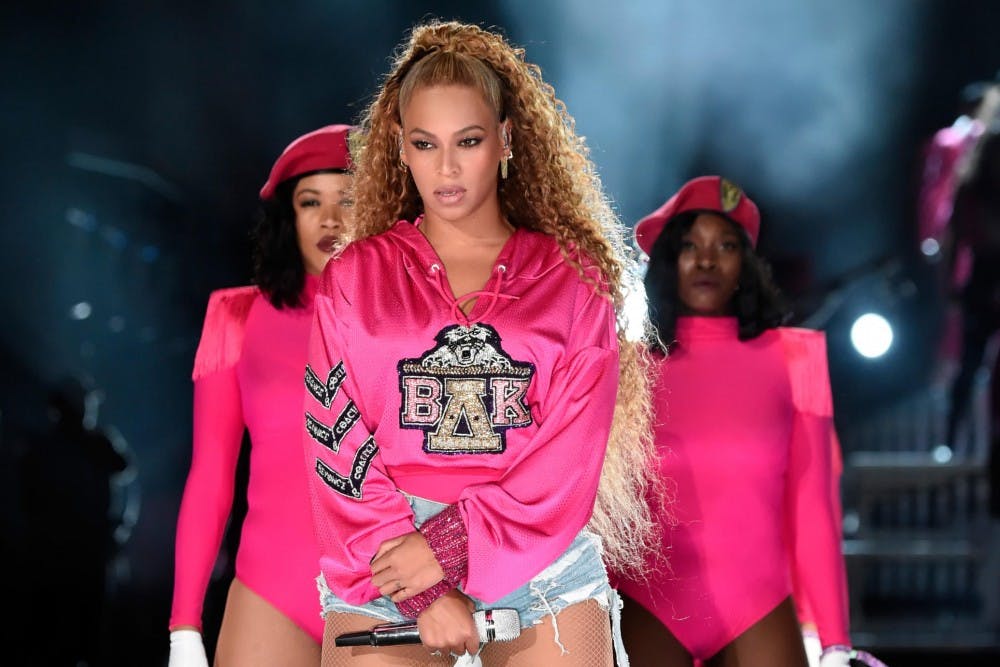If you never wanted to attend or visit a historically black college or university, you will after watching Beyoncé’s “Homecoming.”
“Homecoming” released on Netflix on April 17 and is a concert film documenting her 2018 Coachella performance. Along with the film, she surprise released a live album of the songs from the performance.
Her new documentary is a tribute to both HBCUs and to her career. She performs all the bangers and sprinkles in salutes to other black artists like Nina Simone and Juvenile. It gives broke people like me a chance to watch the spectacle that was “Beychella.”
The documentary is more than just a concert movie or behind the scenes of the long, meticulous process leading up to the performance. It is a homecoming for all Beyoncé fans. It gave us a space to reflect on her history and celebrate the influence she’s had on our lives for decades.
Beyoncé reminds us all that she is a dedicated performer like no one else. She designed a pyramid stage set up, similar to bleachers, had over 200 people on stage at any given time and sang over 30 songs. There is not a single moment during the performance that is similar to anything I have seen Beyoncé, or any performer, do before.
HBCUs and their culture are at the forefront of the entire performance. While this is a celebration of Beyoncé’s career, it’s also a celebration of black people and black culture. Her dancers, orchestra and backup singers are predominantly black. All the performers are wearing Balmain hoodies with dazzling greek letters on them, and the pyramid stage makes the crowd feel like they’re at an HBCU, partying and celebrating with Beyoncé.
Beyoncé raised me. As a young black girl with no black family members, Beyoncé was like my cool older sister. My favorite song as a 5 year old was “Lose My Breath” by Destiny’s Child, and I remember rushing to my computer room after elementary school to sit and watch Beyoncé videos until dinnertime.
A quote shown in the movie is, “You can’t be what you can’t see.”
As a child, Beyoncé was the only black woman I saw and heard from regularly. To see a strong, successful black woman dominate the world inspired me and still does today. She taught me the power of being a woman and of being black.
Toward the end of the film, a spoken interview with Maya Angelou is played.
“I want to be a representation of my race, the human race,” she said in the recording. “I have a chance to show how kind we can be, how intelligent and generous we can be.”
Beyoncé is a hero to many people. Blackness and femininity are popular subjects for her to sing about, but her music influences all people. For many, including me, she is a role model.
I will only be talking about “Homecoming” for the next few weeks, and I imagine I am not the only person in the midst of another Beyoncé obsession.




